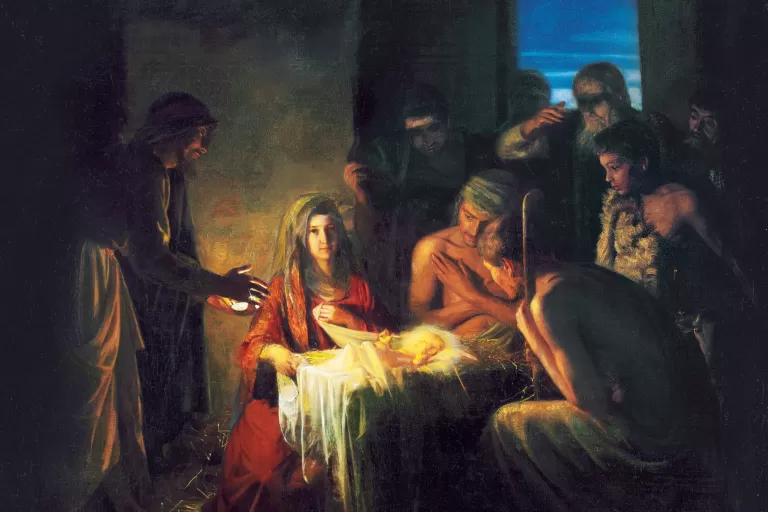
I want to tell a familiar story with this in mind: Christmas is all about ‘love.’
“And it came to pass in those days, that there went out a decree from Caesar Augustus, that all the world should be taxed.” (Luke 2:1)
You know, as Caesar and the oppressive Roman Empire counted and taxed the goods of life from its subjects, the same time a true king was born, who would also number His sheep, but He would free them and give them the abundance of life, not take it. And again, “(And this taxing was first made when Cyrenius was governor of Syria.)” (Luke 2:2)
Sometimes I wonder what that’s in there for. But the book of Luke was a letter written to a friend. This parenthetical comment was directed by Luke to his friend Theophilus to give him a point of time reference for the beginning of his story.
And another thought is that every year we send Christmas cards with expressions of love and faith and greeting. So what does that make the Book of Luke then? – the world’s first Christmas card.
“And all went to be taxed, every one unto his own city. And Joseph also went up from Galilee, out of the city of Nazareth, unto Judaea unto the city of David, which is called Bethlehem; (because he was of the house and lineage of David:) To be taxed with Mary his espoused wife, being great with child.” (Luke 2:3-5)
No matter what the customs of the Jews, Joseph and Mary returned to Bethlehem because God wanted them to, because Jesus must be born in Bethlehem to fulfill the words of the prophets. We can only imagine how arduous that journey must have been for Mary who was full-term. Yet, sacrifice, then and now, brings forth the blessings of Heaven.
“And so it was, that, while they were there, the days were accomplished that she should be delivered. And she brought forth her firstborn son,…” (Luke 2:6-7)
Jesus was Mary’s firstborn, and the birthright son of Joseph’s family. Later Mary would have at least four more sons, and at least two daughters. So I guess you could say in more ways than one, Jesus stood at the head of large family.
“… and wrapped him in swaddling clothes,…” (Luke 2:7)
To swaddle was to wrap the newborn to provide comfort and security. Isaiah prophesied in the Old Testament that a virgin would conceive and bring forth a son. And then he said right after that, that “…Butter and honey shall he eat…” meaning the son of the virgin. (Isaiah 7:14-15) Butter and honey were staples in the diet of the poor. The meaning seems to be that Jesus would be born in poverty. Swaddling clothes were strips of cloth, or if you will, ‘rags.’
“… and laid him in a manger; because there was no room for them in the inn[s].” (Luke 2:7)
Mary’s condition would have been obvious. Imagine if an expectant mother came to your door. Could you ever turn her away? Yet in the hardness of their hearts, no one would make room for her in the inns.
Descended from the royal courts on high, the Prince of Peace, the King of Heaven, was born in His own city, among His own people, in a stable.
When Jesus said, “…I came unto mine own, and mine own received me not…” (D&C 6:21), even in His birth it was fulfilled. Bethlehem marked the beginning of the journey for the Savior who would descend below all things that He might rise above all things.
My friends, I hope – I hope with all of my heart that the love of the Savior fills your heart this Christmas, and that love spreads to all men as you make room for Him.
Merry Christmas.
Story Credits
Glenn Rawson – December 2006
Music: What Child Is This? - Jenny Oaks Baker
Song: Make Room for Him - Lauri Carrigan
Painting: The Birth of Jesus, by Carl Heinrich Bloch

